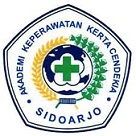THE RELATIONSHIP BETWEEN POSITIVE THINKING AND SELF ACCEPTANCE ON ELDERLY IN THE NURSING HOMES: A LITERATURE REVIEW
DOI:
https://doi.org/10.36720/nhjk.v10i2.257Keywords:
Positive thinking, self-acceptance, elderly, nursing homesAbstract
Background: Low elderly self-acceptance in nursing homes affects their quality of life. Elderly difficult to adapting so they feel stressed, lose of control of lives, lose identity. Positive thinking is a form of adaption that can be done by the elderly to have good self acceptance to live in nursong homes.
Objective: To know the relationship betwen positive thinking and self-acceptance elderly in nursing homes.
Design: A Whittemore and Khanfl’s integrative review was used in this review.
Data Sources: This systematic review searched 4 electronic database Scopus, Proquest, Pubmed, Science Direct that published in 2015-2020.
Review Methods: Key terms and phrases that utilized were positive thinking OR optimism, self acceptance, elderly OR aged, nursing homes OR orphanage. The JBI Guideline used to asses the quality of each study. Data tabulation and narrative analysis were performed.
Results: A total of 11 papers were included in this review. The included studies were divided into three-part, positive thinking in the elderly (n=4), self-acceptance (n=3) and both (n=4). The average number of samples used in each study was 35 people.
Conclusion: Positive thinking related to self-acceptance of the elderly in nursing homes. Elders who think positively have a positive mind about themselves, acknowledge and accept various aspects including the good and bad and look at life positively, so they get life satisfaction. The elderly more often feels happiness, enthusiasm to support life, actively appreciate the environment. Good quality of life will increase welfare.
Downloads
References
Achmad, N. (2016). Quality of life of elderly in nursing homes in Indonesia. Man in India, 96(9), 3373–3381.
Andini, A., & Supriyadi, S. (2013). Hubungan antara berpikir positif dengan harga diri pada lansia yang tinggal di panti jompo di Bali. Jurnal Psikologi Udayana, 1(1).
Bahkruddinsyah, R. (2016). Makna Hidup Dan Arti Kebahagiaan Pada Lansia Di Panti Werdha Nirwana Puri Samarinda. 4(4), 431–445.
Cho, E., Kim, H., Kim, J., Lee, K., Meghani, S. H., & Chang, S. J. (2017). Older Adult Residents’ Perceptions of Daily Lives in Nursing Homes. Journal of Nursing Scholarship, 49(5), 495–503. https://doi.org/10.1111/jnu.12314
Cooper, H. M. (1998). Synthesing research: A guide for literature reviews.Thousand Oaks, California: Sage
Drageset, J., Haugan, G., & Tranvåg, O. (2017). Crucial aspects promoting meaning and purpose in life: Perceptions of nursing home residents. BMC Geriatrics, 17(1). https://doi.org/10.1186/s12877-017-0650-x
Flecha GarcÃa, A. C. (2019). Self-acceptance and meaning/purpose in life between senior citizens residing in nursing home. Pedagogia Social, 33, 137–148. https://doi.org/10.7179/PSRI_2019.33.10
Gilbert, S., Amella, E., Edlund, B., & Nemeth, L. (2015). Making the Move: A Mixed Research Integrative Review. Healthcare, 3(3), 757–774. https://doi.org/10.3390/healthcare3030757
Gunarsih, A. E. (2019). Pengaruh Acc (Acceptance And Commitment Care) Terhadap Penerimaan Diri Lansia Yang Hidup Di Panti Werdha Surabaya. Universitas Airlangga.
Green, L. W., & Kreuter, M. N. (2005). Health planning: An educational and ecological approach. New York: McGraw-Hill
Hensides, M. F. (2018). Penerimaan Diri Lansia Di Panti Werdha. Fakultas Psikologi: Universitas Ahmad Dahlan Yogyakarta.
Kirkevold, M. (1997). Integrative nursing research—an important strategy to further the development of nursing science and nursing practice. Journal of Advanced Nursing, 25(5), 977-984. https://doi.org/10.1046/j.13652648.1997.1997025977.x
Lotvonen, S., Kyngäs, H., Koistinen, P., Bloigu, R., & Elo, S. (2018). Mental well-being of older people in Finland during the first year in senior housing and its association with physical performance'. International Journal of Environmental Research and Public Health, 15(7). https://doi.org/10.3390/ijerph15071331
Rijnaard, M. D., Van Hoof, J., Janssen, B. M., Verbeek, H., Pocornie, W., Eijkelenboom, A., Beerens, H. C., Molony, S. L., & Wouters, E. J. M. (2016). The Factors Influencing the Sense of Home in Nursing Homes: A Systematic Review from the Perspective of Residents. https://doi.org/10.1155/2016/6143645
Rohmah, A.I., Purwaningsih., Khoridatul Bariyah. (2012). Kualitas Hidup Lanjut Usia. Jurnal Keperawatan, 3(2), 120-132
Rinnan, E., André, B., Drageset, J., Garåsen, H., Espnes, G. A., & Haugan, G. (2018). Joy of life in nursing homes: A qualitative study of what constitutes the essence of Joy of life in elderly individuals living in Norwegian nursing homes. Scandinavian Journal of Caring Sciences, 32(4), 1468–1476. https://doi.org/10.1111/scs.12598
Safari, S., & Akbari, B. (2018). The Effectiveness of Positive Thinking Training on Psychological Well-Being and Quality of Life in the Elderly. Avicenna Journal of Neuro Psycho Physiology, 113–122. https://doi.org/10.32598/ajnpp.5.3.113
Saffarinia, M., & Dortaj, A. (2018). Effect of group logotherapy on life expectancy and mental and social wellbeing of the female elderly residents of Nursing Homes in Dubai'. Iranian Journal of Ageing, 12(4), 482–493. https://doi.org/10.21859/SIJA.12.4.482
Shantall, T. (2020). The Life-changing Impact of Viktor Frankl's Logotherapy. Switzerland: Springer Nature
Singh, S., Subramanyam, A., Kamath, R., Pinto, C., Raut, N., & Shanker, S. (2014). Perception of old age and self: A comparative study of elderly females living in community and in old age home'. Journal of Geriatric Mental Health, 1(1), 32. https://doi.org/10.4103/2348-9995.141923
Souza, M. T. d., Silva, M. D. d., & Carvalho, R. d. (2010). Integrative review: what is it? How to do it? Einstein (São Paulo), 8(1), 102-106. https://doi.org/10.1590/s167945082010rw1134
Sullivan, G. J., & Williams, C. (2017). 'Older adult transitions into long-term care: A meta-synthesis'. Journal of Gerontological Nursing, 43(3), 41–49. https://doi.org/10.3928/00989134-20161109-07
Tentama, F. (2010). Berpikir positif dan penerimaan diri pada remaja penyandang cacat tubuh akibat kecelakaan. Humanitas: Jurnal Psikologi Indonesia, 7(1), 24591.
Utomo, T., & Prasetyo, E. (2012). Well-being pada lansia yang tinggal di Panti Werdha atas dasar keputusan sendiri. Experientia: Jurnal Psikologi Indonesia, 1(1), 57–69.
Whittemore, R., & Knafl, K. (2005). The integrative review: updated methodology. Journal of Advanced Nursing, 52 (5), 546-553. https://doi.org/10.1111/j.1365-2648.2005.03621.x
Wren, R. ’. (2018). SOAR @ USA SOAR @ USA Effect of Life Review on Quality of Life for Older Adults Living in Effect of Life Review on Quality of Life for Older Adults Living in Nursing Homes Nursing Homes Effect of life review on quality of life for older adults living in nursing homes. Physical and Occupational Therapy in Geriatrics, 34(4), 186–204. https://doi.org/10.1080/02703181.2016.1268236
Downloads
Published
How to Cite
Issue
Section
Citation Check
License
Authors who publish with Nurse and Health: Jurnal Keperawatan agree to the following terms:
- Authors retain copyright licensed under a Creative Commons Attribution-NonCommercial 4.0 (CC BY-NC 4.0), which allows others to remix, tweak, and build upon the authors' work non-commercially, and although the others' new works must also acknowledge the authors and be non-commercial, they don't have to license their derivative works on the same terms.
- Authors are permitted and encouraged to post their work online (e.g., in institutional repositories or on their website) prior to and during the submission process, as it can lead to productive exchanges, as well as earlier and greater citation of published work (See The Effect of Open Access). Authors can archive pre-print and post-print or publisher's version/PDF.









